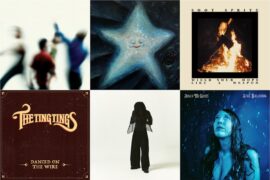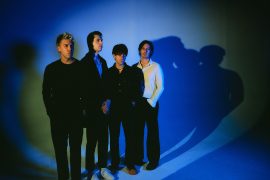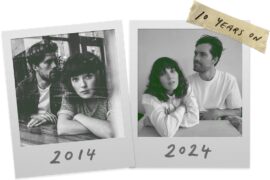Nat Harvie, a respected member of the esteemed music scenes in both Minneapolis and Duluth, MN, created a project of complex merit. As the listener falls into the intoxication of the sonics, the musicality, of ‘New Virginity,’ it is easy to lose sight of the enigmatic story being told lyrically and visually. Those able to sit with both will be rewarded, and, perhaps, intimately affected, by the nakedness of the concept.
Stream: ‘New Virginity’ – Nat Harvie
“If you’re gonna do a good job, it has to dominate your life for at least a month or two,” says Minneapolis, MN-based singer/songwriter and working producer Nat Harvie, who, after a personal loss, opted to revisit the core of, and significantly alter, what would become their latest project, New Virginity.
“I do this 10-15 times a year, so having a clear understanding of what the end of the tunnel looks like… I think I felt less of a sense of risk. It’s not that I wasn’t scared of going back, I was more scared of the record… missing the punch or the impact that I wanted it to have.”
Harvie, originally from, Duluth, MN, just over two hours northeast of Minneapolis, performed this interview comfortably sat on the couch with their arms crossed. On occasion, even when positioned in this manner, their dry, though quick-witted, sense of humor presented itself in pleasant and unexpected ways, though they slowly and carefully chose their words to string together eloquent, complex thoughts. Extended periods of silence to ensure their full scope of their views were shared quickly became canon.

New Virginity, out now, is a musically and thematically expansive project centered around the idea of rebirth, loss of innocence, and the mirroring of childhood in adulthood.
Though there are copies, files, of the original iteration of the record, Harvie does not easily recall its contents. They were working with a friend, Eric Littmann, the first time around, then tapped another collaborator, Andrew Broder, for the updated version.
“It wasn’t like I started from scratch… We gutted the house, kept the framing, and redid the finishes,” they tell Atwood Magazine. “It has a darker sound overall. When I first came to Andrew, I wasn’t operating on the level of, ‘Let’s remake the record,’ I think I just said, ‘Oh, I need your help with the percussion… I want it to be darker, and more menacing.’ Before I knew it, we were on day two of tracking grand piano. He knew what I was looking for, and it became clear relatively fast that that wasn’t just different drum programming, or whatever, it was a deeper scoop into it.”
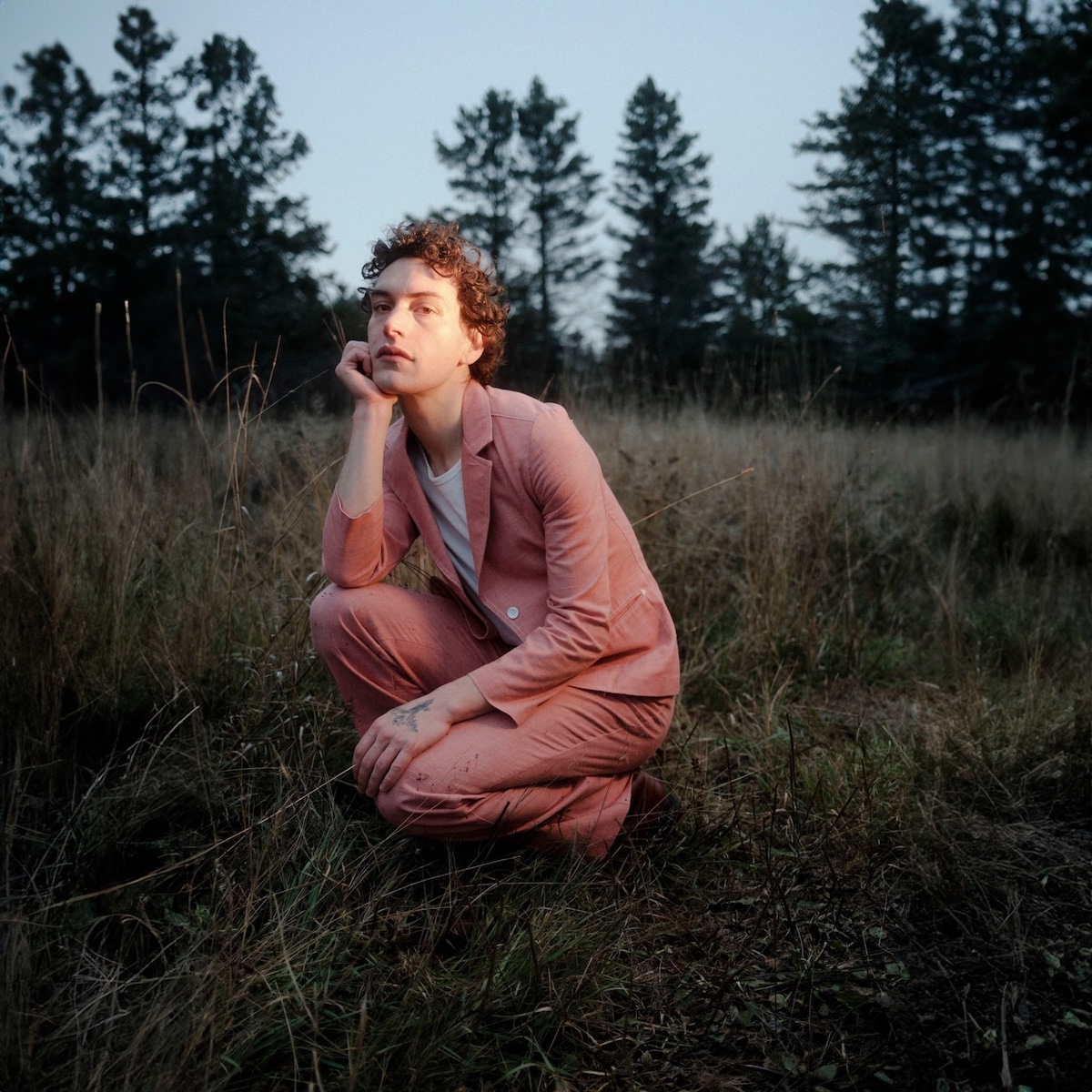
Vocally, Harvie’s performance is reminiscent of a more sensitive, contained indie/alternative sound, while their instrumental arrangements lean into a more alternative rock, perhaps light adult contemporary, direction to expand the gravitas of the sound. Perfume Genius is the most direct point of reference, though Harvie, while crediting Ugly Season as a personal favorite, states they often look elsewhere.
“The music that I listen to is largely the music that I work on,” they say. “And, the music that I work on is largely my friends and community.” They cite acts like Cole Pulice, a boundary-pushing electroacoustic saxophonist out of Oakland, CA, Duluth-based artist Ryan Wayne i.e. Lion or Gazelle, and Minneapolis-based Nona Invie, formerly of acclaimed folk band Dark Dark Dark, as standout members of the community.
Though choosing to not explicitly label their music as ‘queer,’ the idea of doing so, specifically in the Midwest, comes with its own connotations. “I remember when I was coming up in the Duluth scene,” they recall. “My band was the only all-queer band in the scene, at the time. It didn’t feel cool. It felt a little edgy, but it felt pretty bad, pretty often. We didn’t have to be like, ‘We’re a queer band!!,’ it was extremely evident in this kind of place.”
As time has passed, they say the “cultural capital” surrounding queerness has increased in these spaces, though negative experiences of being asked to speak on things they felt were inappropriate make them only want to take it so far.
“My experiences, or the experiences I write about… the way that music moves people, is evocative to that link, and those demographics,” they share. “But, I don’t have anything interesting to say about that anymore. I don’t want to make identitarian pop music. I think I’m just more driven, like most musicians, by a desperate need to have my voice heard. On previous records, there was this element of singing to a younger self. I’m sure, at this point, my younger self is sick to death of hearing about this shit.”
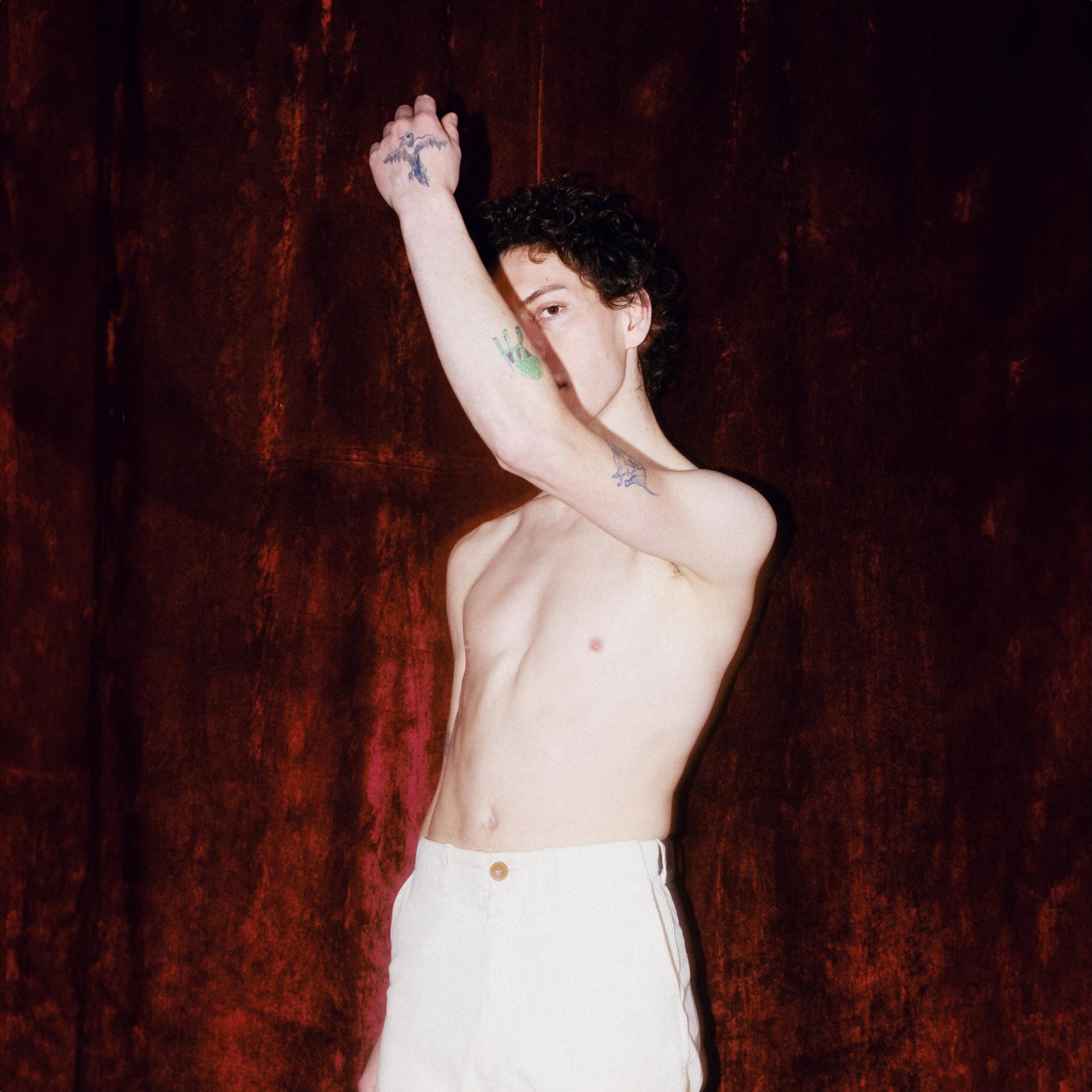
The concept of ‘young self meets current self’ is portrayed in the music video for “Shovel,” an experiment of lyrics and sounds brought to life in the most nurturing of ways. Harvie’s mother, Nancy Sudak, acts alongside them in the video as their younger self looking on to guide their current self.
“I saw this photo from the early 90’s with her head turned, like I might turn my head,” they say. “I was like, ‘That’s me, you’re me. I, the child, you’re me, I’m not you.’ She was able to rise to the situation because she is, by her own grace, extremely ‘down-to-clown.’ She was able to put herself in this place because she’s not an artist. She doesn’t have this vanity… the desire or need to be pristine, though she’s very beautiful. Because of that, she was able to enter this situation and really just mirror me.”
Though questions may be raised, the thought that the younger self is somehow incapable of this responsibility is not a factor in this scenario. “It’s not about experience or wisdom, it’s about an ability to access ecstasy, or really unrefined catharsis,” they say. “That’s not about health, or wisdom, or virtue, it’s about being in a landmark closer to birth, or a total lack of experience. Because of the sort of virginity of that situation, it’s about the transference of virginity… the remembering of a sort of broad virginity to a sort of later version of the self.”
I was a child sleeping with a shovel in my bed
I was lining up Mom’s earrings on the floor
I was a germaphobe, I could’ve been a murderer
Always stepping back letting anything unfold
By their own omission, their writing is “too square” to be considered among new neo-soul, but the consistent use of saxophone throughout the record establishes a sense of musical maturity. A sparring partner to both listen and respond adequately.
“Maybe not resolution, but, thematically, something is being enacted when you hear the saxophone on the record,” they say. “The saxophone happens on the record in these moments of witness, not necessarily positive or negative.”
”Red,” featuring Alan Sparhawk of the influential Duluth-based band Low, and Cole Pulice, uncredited, is, in sections, frenetic like a Depeche Mode or Nine Inch Nails song. This energy rises and falls sharply throughout the tune, typically in line with the conclusion of Harvie’s lyrical passages. Sparhawk, in both audio and visual formats, adds an enigmatic element of unearthliness with his contribution:
Show me that red, show me that trust
Lend me that courage now,
lend me that trouble
I am an animal, I am an animal
Dancing like a woman, singing just like a woman
“A theme I was thinking a lot about… was this notion of, ‘Can you run so fast and straight into a trap, that the trap breaks?,” they explained. “I think that the basic structure of the song, which is two chords… that’s the body of the trap. The thing that can be run into. The singing, lyrics, and features on there are the action. The action of trying to break the trap by seeing it and running into it.”
Remaining songs of note include the sob rock-infused “Cigapple,” adult-contemporary mixed with indie pop on “Cheap,” and the crunchy distortedness of “Shugarboy,” featuring Chicago-based musicians Lala Lala and Brent Penny, derived from a beat of drumline samples. This tune is Harvie’s challenge to the audience, curious if they’d be, “willing to meet this frenetic writing and production in good faith.”
The melancholic adult-contemporary rock of album closer “Weak Leg,” featuring Pittsburgh, PA-based musician Merce Lemon, is, even amongst the sparkle of “Cheap” and the deliberate glimmer pop of “Easy Song,” this projects long-awaited moment of level-headedness and finality. The saxophone, once again, plays a major part, as just one element of the strictest, most alternative-leaning instrumental of the project. “It’s important to me that that song is succinct,” Harvie says. “The story of it is short, and I intend for it to be very focused.”
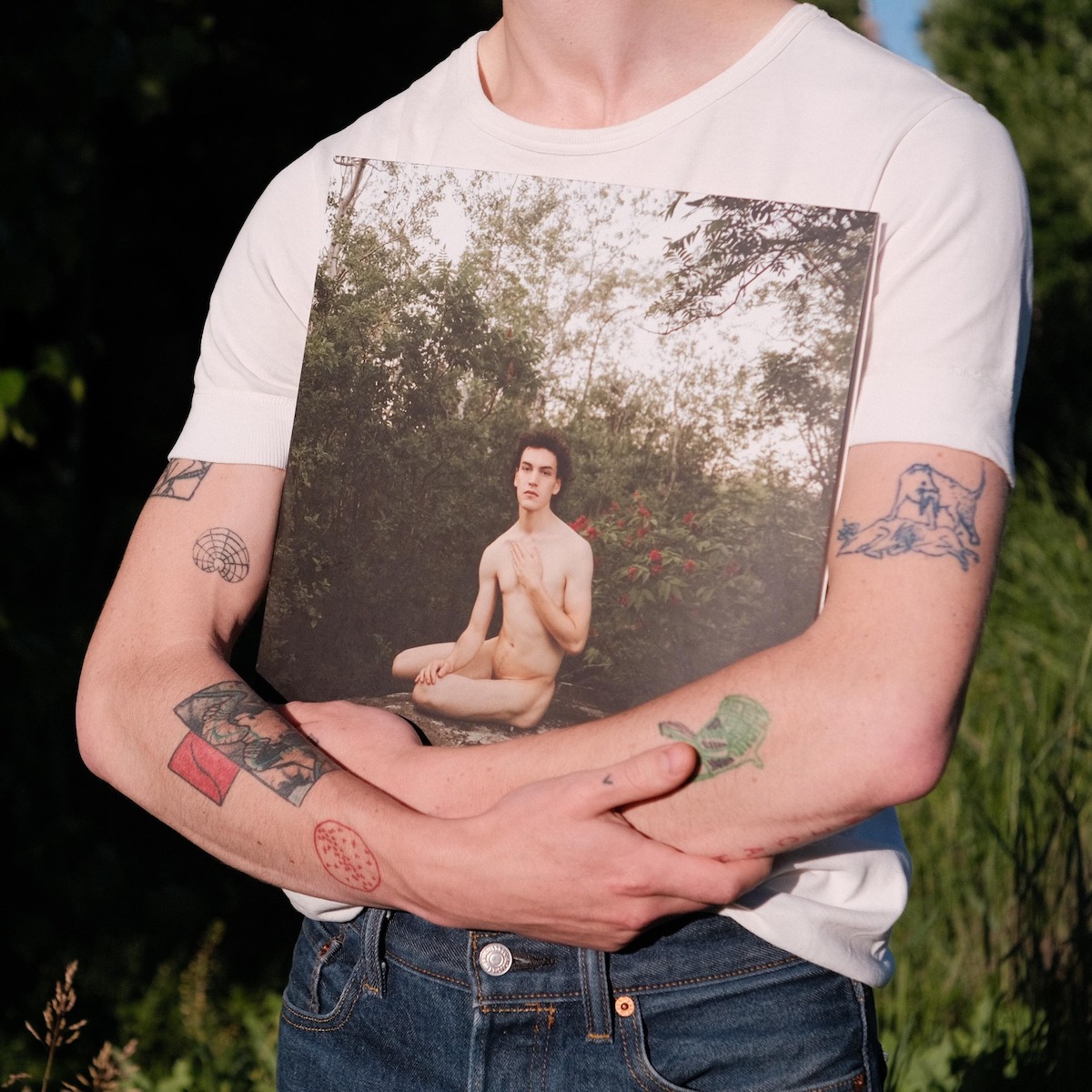
At eight songs and under a half hour in length, New Virginity is, in a way, succinct.
In other ways, it is a project designed to capture the imagination… to secure a spot in the listeners psyche regarding their own relationship with aspects of childhood trauma aimlessly carried into adulthood.
“This record deals so much with resetting one’s relationship, broadly, to the sensual,” they say. “If you do that, that means you’re also resetting your relationship to death, or loss, or loneliness. You’re shedding the protective layers you felt to deal with those things. The record follows the ecstasy of virginity, and ‘Weak Leg,’ is the idea of, ‘Now death is new, too.’ To be alone, and to feel it, is all so new again. It’s not the cost of new virginity, it’s just a part of that thing. To have to lose for the first time again.”
— —
:: stream/purchase New Virginity here ::
:: connect with Nat Harvie here ::
— — — —

Connect to Nat Harvie on
Facebook, Twitter, TikTok, Instagram
Discover new music on Atwood Magazine
© Zoe Prinds-Flash
New Virginity
an album by Nat Harvie


 © Zoe Prinds-Flash
© Zoe Prinds-Flash
